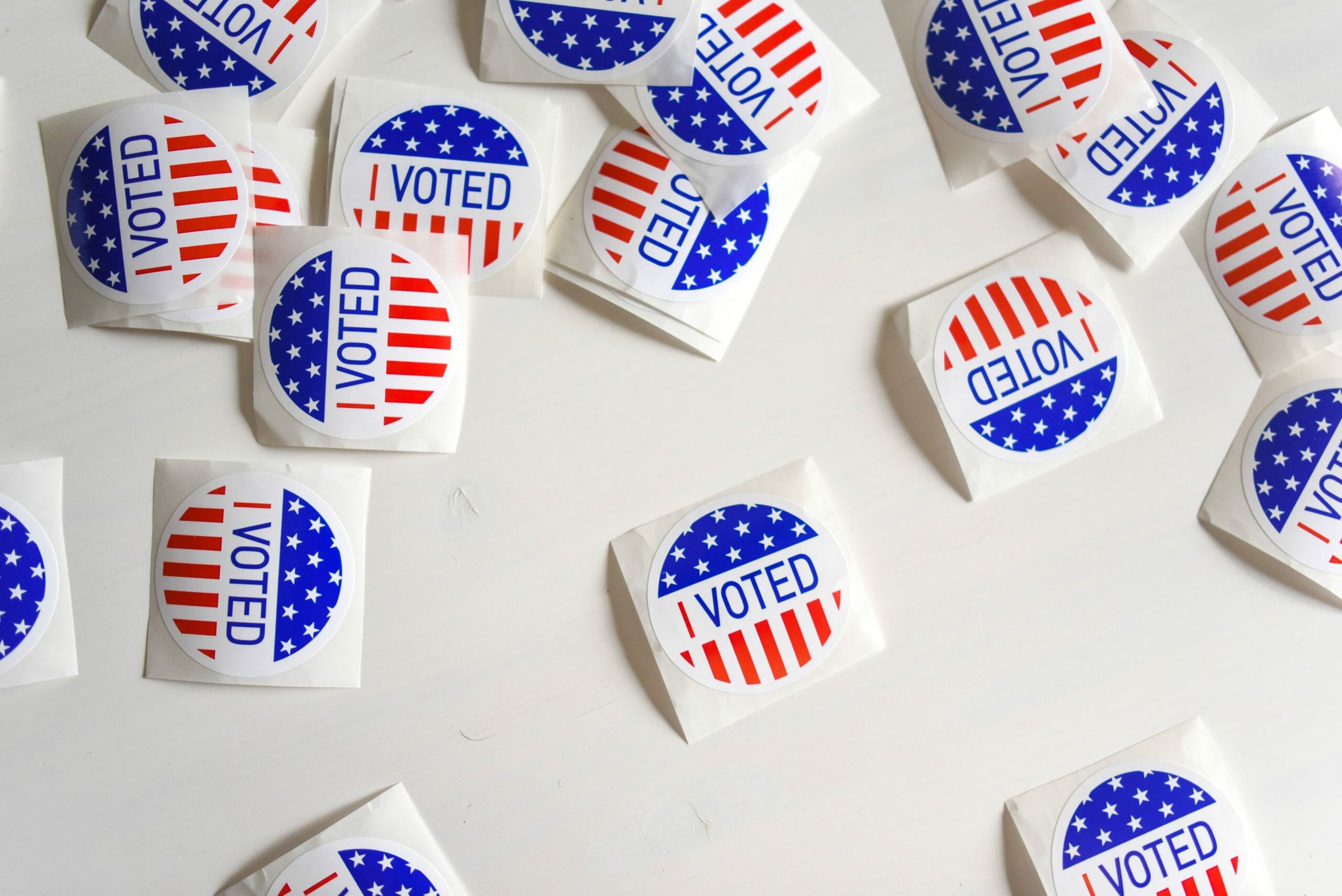
Photo by Element5 Digital on Unsplash
With anxieties on the rise during election season, faith communities can help
Rev. Michael Woolf
October 27, 2020
As I look at my email inbox and pastoral care schedule, it’s clear to me that this election is causing significant anxiety for Americans throughout the country, a fact borne out by a recent American Psychological Association poll. That poll found that over two-thirds (68%) of U.S. adults are experiencing significant anxiety about the election, and that this stress was felt across the political spectrum. These numbers also represented a significant increase from the 2016 election when just over half (52%) experienced those elections as a significant source of stress. In addition, a recent poll of psychiatrists by the Psychiatric Times found that 78% of practitioners’ patients were citing the election as a significant source of stress.
With the country in the midst of a pandemic and election stress on the rise, congregations need to step into the gap to meet the needs not just of churchgoers, but people in their communities.
Many congregations have urged their members to vote and have provided them with nonpartisan polling information, but what steps have we taken to meet people’s spiritual and emotional needs during this election season? With the country in the midst of a pandemic and election stress on the rise, congregations need to step into the gap to meet the needs not just of churchgoers, but people in their communities. They can do so in myriad ways, but here are three that I am putting to use in my ministry:
- Hold a Voter Sabbath event. Whether you are in-person, online, or some mix of the two, an event on Election Day may help center your congregation. If your building is in use, consider opening your sanctuary for socially-distanced meditation and prayer. Many have not been in a sanctuary for a long time, either due to COVID-19 or lack of religious affiliation, so this is a great opportunity to make meaning by offering a centering space for the community to use before or after voting. If possible, plan for a short prayer service for discernment and our nation at some point in the day. There are precious few nonpartisan spaces in American life at the moment, and the church can play a major role in fostering mental health and meaning making by giving community members a place to work out their anxiety in community – either in person or online.
- Plan a skill-building class around meditation or prayer. This can either be focused on the election or just be about handling anxiety. Many adults struggle with anxiety, and many of them are more comfortable seeking out spiritual resources than psychological ones. If you have a meditation of contemplative practice that is useful for centering yourself, consider sharing it with your congregation. If you’re completely online, consider sharing resources like this one. My personal practice is centered on Richard Rohr’s concept of prayer and the name of God that is outlined here. One simply breathes in and out while saying the name of God, remembering that every breath has within it the Divine name. Whatever you do, I recommend not just sharing a resource, but committing to a time of practicing it with your community, being vulnerable in sharing what works for you and doesn’t.
- Commit to pastoral counseling and referrals. As a pastor, I have watched my schedule fill up with appointments dealing with election anxiety. A temptation may be to put off seeing congregants virtually or in person, but these conversations are important. If clergy cannot handle the increased demand for their time, congregations should consider training congregants to act as peer support. In fact, such a robust peer support network may be more desirable than relying on clergy to be the sole pastoral care provider in a community. However, clergy and congregants should not take on more than they can handle. The most powerful tool in a pastoral care provider’s arsenal is making a good referral for psychological care, and times like these will likely put that tool to good use.
These ideas are not inclusive of the range of possibilities. Many congregations are responding creatively to this time of increased stress and difficulty. The most important thing is that communities of faith react in whatever ways make sense to them. Not to do so would be a shame, as congregations have many tools at their disposal for handling anxiety and making meaning that congregants and community members need in this election season.
The Rev. Michael Woolf is senior minister, Lake Street Church of Evanston, Illinois and a ThD candidate at Harvard University.
The views expressed are those of the author and not necessarily those of American Baptist Home Mission Societies.


